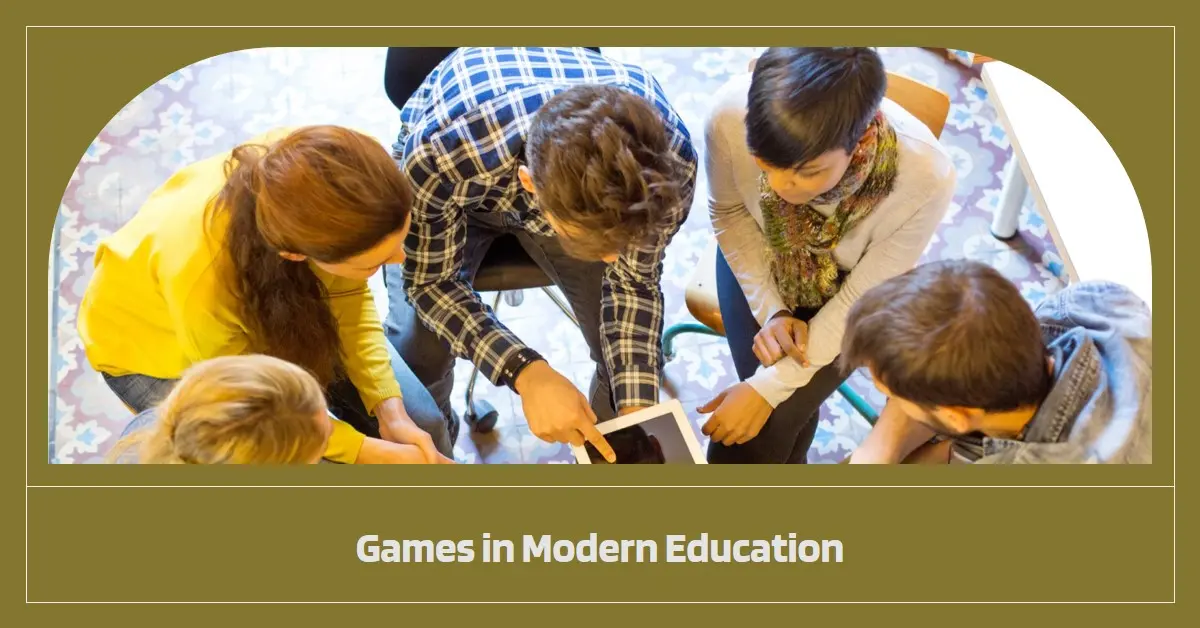Education has undergone a significant transformation in the last few decades, with one of the most innovative changes being the inclusion of games in the learning process. Gone are the days when learning was confined to the four walls of a classroom with a chalkboard at the helm.
As we delve further into the 21st century, education is becoming more dynamic, interactive, and fun, thanks to the integration of games. Let’s explore the multifaceted role that games are playing in modern education.
Games as Engaging Learning Tools
In the landscape of modern education, games are not just a welcome break from routine; they are powerful tools that transform the learning process. Their inherent ability to create engagement through interactivity and narrative makes games exceptional as learning tools.
Interactivity and Immersion
Games require active participation, which leads to immersive experiences for learners. Rather than passively listening to a lecture or memorizing text, students interact with game elements and make choices that affect outcomes. This heightened level of engagement keeps learners intrigued and invested in the material.
Narrative-driven Learning
Many educational games leverage storytelling to make learning more relatable and meaningful. A narrative context can provide a rich backdrop for complex subjects, allowing learners to explore and understand concepts within a story that they can connect emotionally and cognitively.
Reward Systems
Games come with in-built reward systems, which can be incredibly motivating for students. Earning points, levelling up, or obtaining badges for academic achievements mirrors the reward systems they encounter in their favourite video games, providing motivation and satisfaction.
Visual and Kinesthetic Learning
Games are an especially effective tool for visual and kinesthetic learners, those who learn best through seeing and doing. They allow these learners to visualize concepts in action and engage with materials hands-on, catering to diverse learning styles that traditional education systems often overlook.
Real-Time Feedback
Educational games provide immediate feedback, a crucial feature for learning. Games can offer instant analysis when students make mistakes, allowing learners to understand what went wrong and try different approaches. This real-time feedback loop fosters a supportive learning environment where students can experiment and learn from their errors without fearing harsh judgment.
Encouraging Soft Skills Development
The development of soft skills in educational settings is often undervalued, yet these skills are essential for students’ future success. Games are particularly adept at nurturing these skills naturally and engagingly.
Communication Skills
Many games require players to communicate effectively with their peers, whether multiplayer online games like Monster Black Market Guide or in-class simulations. Students learn to articulate ideas, listen to others, and work through misunderstandings, all to serve a common goal.
Collaboration and Teamwork
Games often place players in scenarios where cooperation is key to success. Through these experiences, students learn the importance of teamwork, delegation, conflict resolution, and the synergy of combined effort.
Critical Thinking and Problem-Solving
Games present learners with problems that require more than straightforward memorization or basic calculus. Players must think critically, analyze situations, and develop creative solutions to advance. These challenges mimic real-world problems and enhance decision-making skills.
Adaptability and Flexibility
With ever-changing game scenarios, players must adapt strategies and approaches. This agility, learning to be flexible and to pivot in response to new information, is a soft skill highly sought after in nearly every professional field.
Emotional Intelligence
Many games also emphasize empathy and understanding through role-playing or immersive narratives where players must consider and react to emotional cues. This can heighten students’ emotional intelligence, aiding them in understanding and empathizing with different perspectives.
By incorporating games with strategic design, educators can harness a versatile toolset that appeals to various learning styles while fostering critical soft skills development. Games are not just a modern educational technique; they represent an evolution in how we approach the teaching and learning of both hard skills and the softer, equally important interpersonal abilities.
Customized Learning Experiences
The adaptability of game-based learning allows customization to match a learner’s pace and style. Games often have adjustable difficulty levels, offer immediate feedback and can adapt to the player’s progress. This personalized approach addresses the unique learning needs of each student, which can be particularly beneficial for those who may struggle in traditional academic settings.
Bridging Education and Technology
As we move deeper into the digital age, integrating games into education is an essential bridge between students’ learning environments and the technological world they inhabit. Familiarity with the technology that games provide prepares students for the digital tools and workplaces of the future. Moreover, in an age where coding and programming are becoming as fundamental as reading and writing, educational games can serve as an introduction to computational thinking.
Supplementing Traditional Methods
It is important to note that the role of games in education is complementary. Traditional teaching methods are important and often necessary to provide a structured foundation of knowledge. However, when games supplement these traditional methods, they can provide more rounded and diverse educational experiences that align with the modern world’s demands.
The Future of Education
Looking ahead, the potential of games in education seems limitless. The future is bright for educational gaming, from virtual reality experiences that can simulate historical events to puzzle games that lay the foundation for complex mathematical concepts. As research continues and technology advances, we can expect even more innovative and effective ways to integrate games into educational curricula worldwide.
Conclusion
In conclusion, the role of games in modern education is transformative. Games are shaping the educational landscape in exciting and positive ways by engaging students interactively and dynamically, enhancing soft skills development, providing personalized learning experiences, and preparing them for a technology-driven future.
As educators continue to explore and understand the best practices for incorporating games into learning, students stand to benefit from a more enriched and motivating educational journey.
Read more interesting blog on Game Verse 404.



